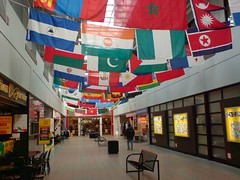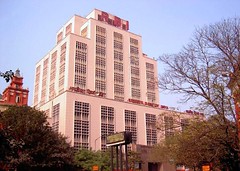 Hyderabad-based real estate developer Keerthi Estates, with huge experience and long term operations in Hyderabad and Bangalore, has launched its premium luxury residential complex – Richmond Villas – in Hyderabad. The gated-villas project, consisting of 157 (4bedroom) villas, is coming up over 24 acres of blossoming green land near Andhra Pradesh Police Academy circle, close to the new International Airport.
Hyderabad-based real estate developer Keerthi Estates, with huge experience and long term operations in Hyderabad and Bangalore, has launched its premium luxury residential complex – Richmond Villas – in Hyderabad. The gated-villas project, consisting of 157 (4bedroom) villas, is coming up over 24 acres of blossoming green land near Andhra Pradesh Police Academy circle, close to the new International Airport.
Managing Director, Keerthi Estates, K Anil Kumar Reddy, said, “Each villa, ranging from 3,400 sq ft over 300 square yards to 4,000 sq ft over 466 sq yds, will be built as triplex and will have a huge multipurpose hall, which could be converted into a mini theatre or bar or gym based on the buyer’s choice”. Each villa would cost between Rupees 1.25 crore and Rupees 1.85 crore.
The project is well connected to all the reachable amenities within 10-15 minutes like hospitals, educational institutions and shopping, the IT hub, financial district, Hi-tech city, international schools. The company has to complete the project by the end of 2013, so it has already taken all the approvals for the project and began construction. They have already completed two model villas and work on 15 villas is now at a later stage. There has been good response to the project so far and more than 30 villas are booked.
With around 52 per cent open area in the gated villas project, the company is offering key facilities such as a smartly designed clubhouse along with sports facilities, a swimming pool and an air-conditioned gym among others. The project also offers a waste management system with sewerage treatment plant, supported by water harvesting system and solar fencing all around.
Keerthi Estates has so far built over 3-million sq ft of residential and commercial space and some 1 million sq ft is currently under development in Hyderabad and Bangalore.










